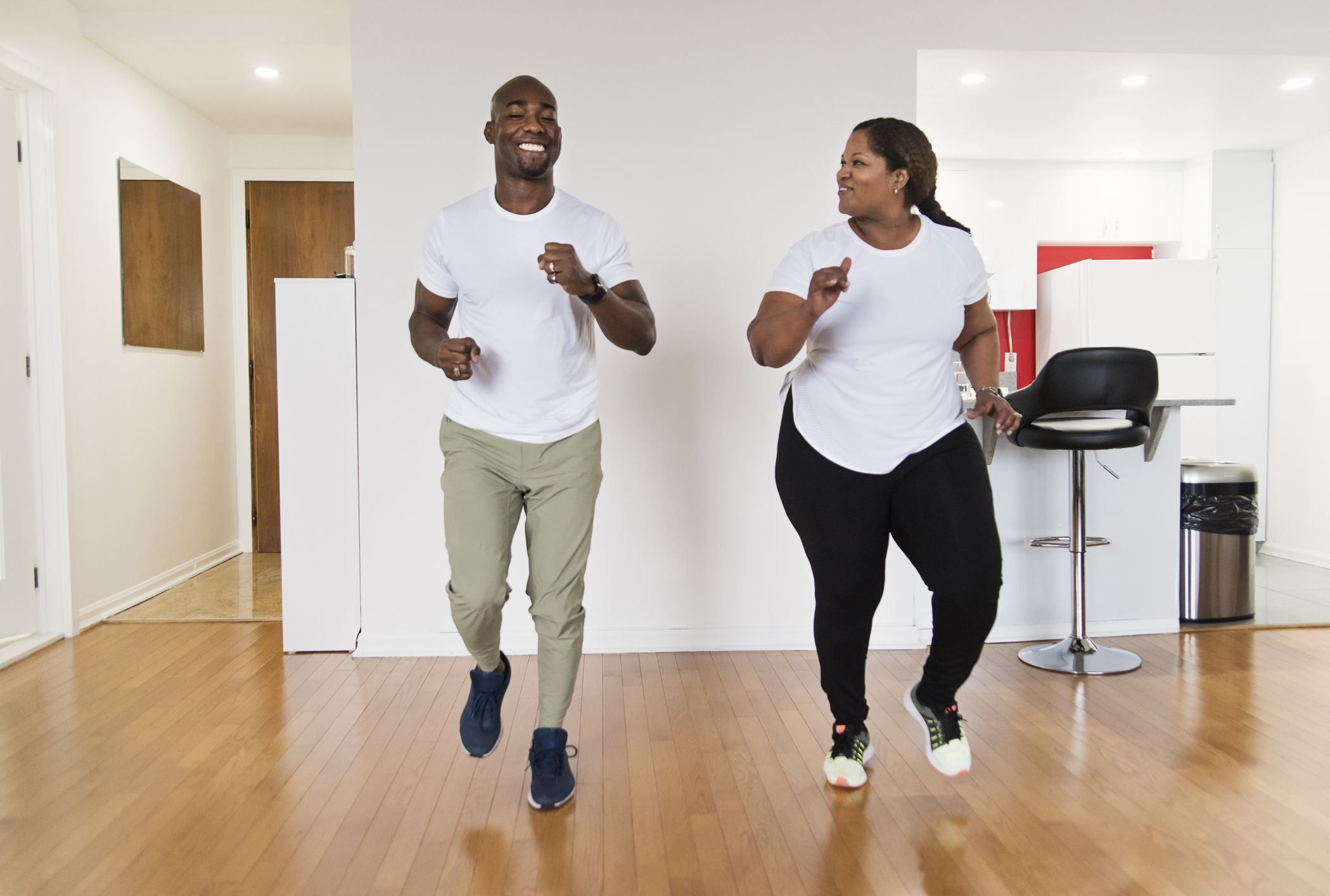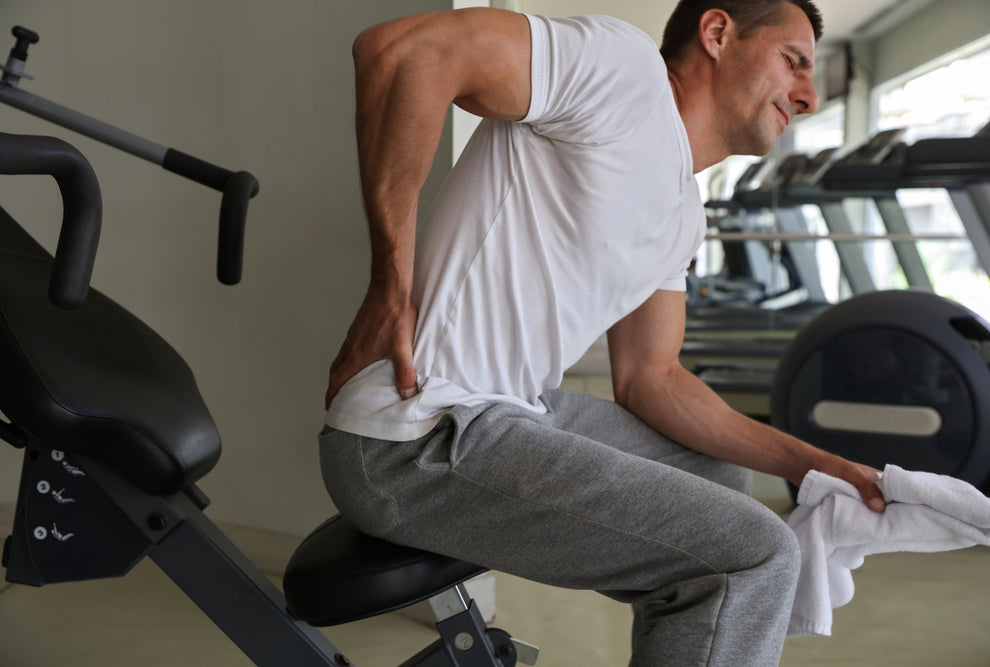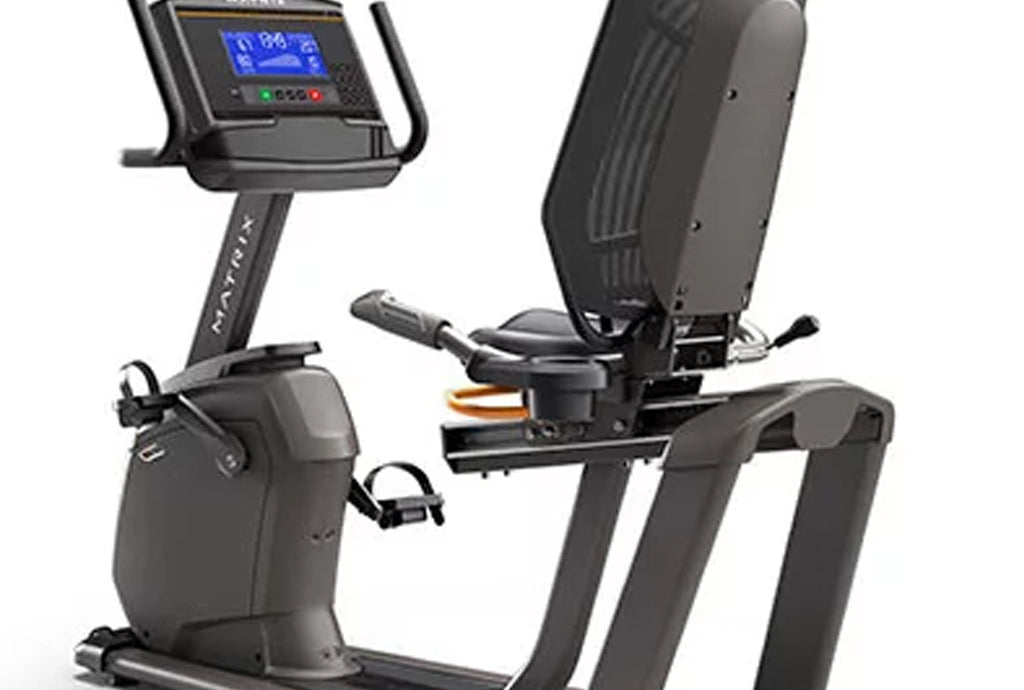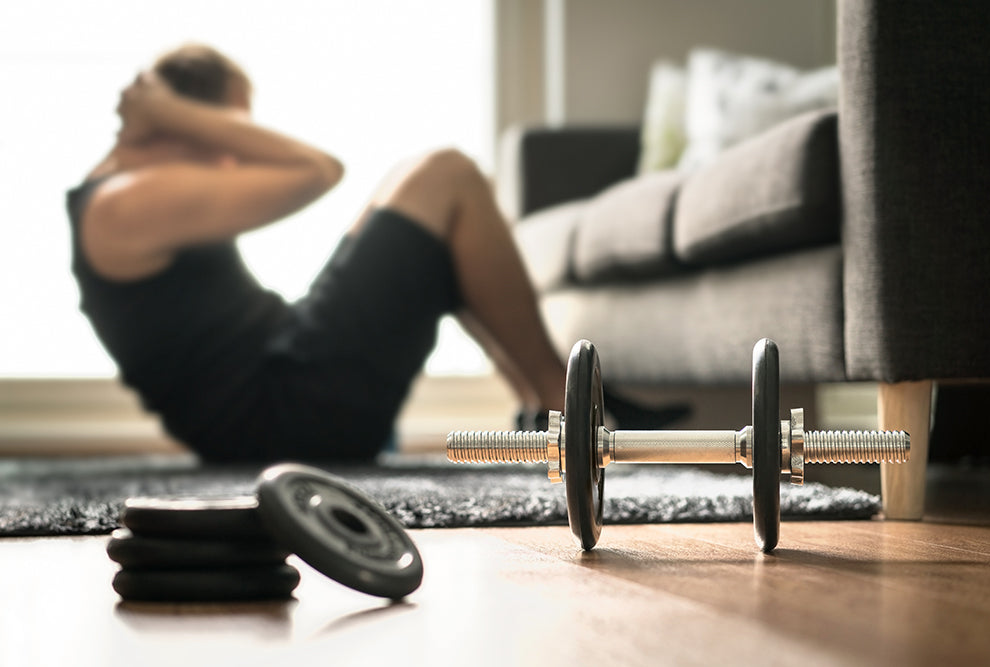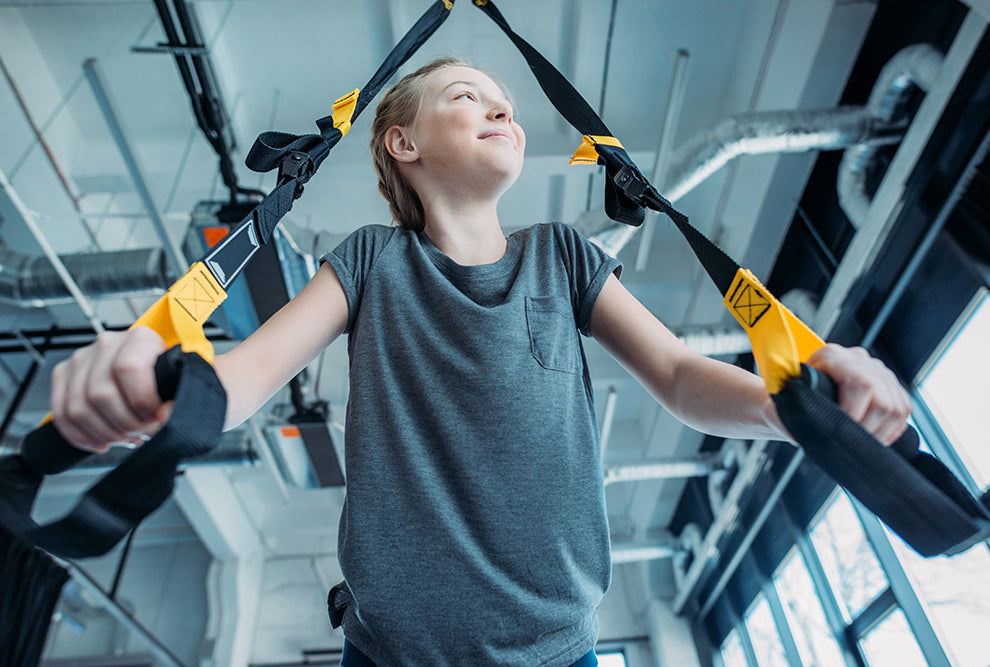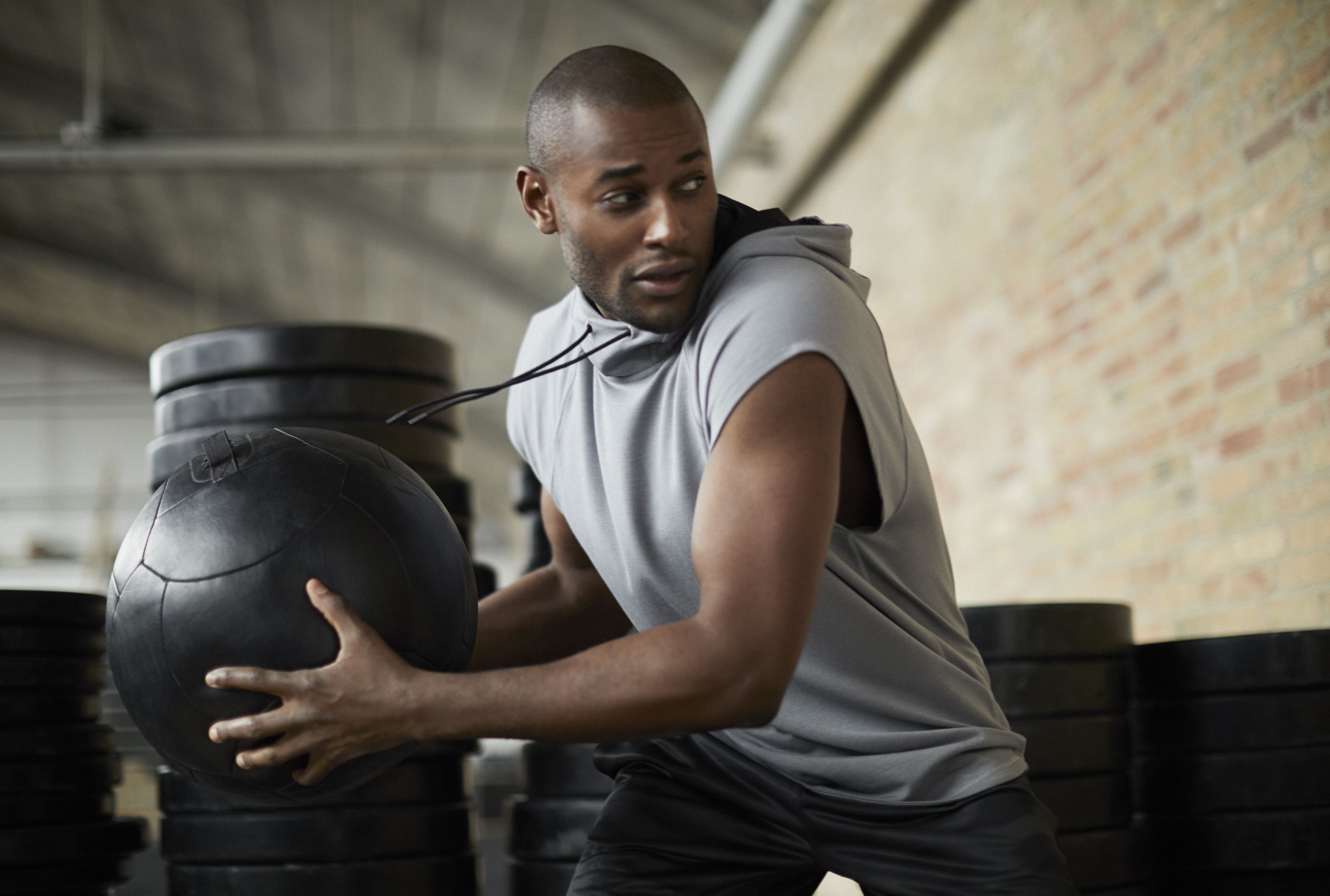
With spin classes sporting snappy names popping up in nearly every major city in America, indoor cycling has experienced quite the revival in recent years. You don’t have to look much further than the calorie-slaying, sweat-drenched aftermath of any spin class to understand why indoor cycling has regained its grip on modern athletes everywhere.
Imagine…
What if you could bottle up the electricity and endorphins of a spin class and enjoy it in the peace and quiet of your own home?
What if you could pick your own spin-class jams and spin, spin, spin to the beat of your own drum?
If that sounds like the perfect way to spend an afternoon, indoor cycling might just be the ideal addition to your stay-at-home workout routine.
While spin classes and outdoor biking groups may be on hiatus due to the coronavirus pandemic, at-home indoor cycling is alive and well.
Read on to answer some of the most important FAQs about indoor cycling:
- Why should I try indoor cycling?
- How long should I ride my exercise bike?
- Can I lose weight quickly on an exercise bike?
- How many calories can I burn on an exercise bike?
- Should I stretch before riding an exercise bike?
- Is an indoor bike good for exercise?
- What should my heart rate be when riding on an exercise bike?
- What’s the difference between a recumbent exercise bike and a spin bike?
- Can I use an exercise bike with bad knees?
- Is indoor cycling right for me?
Why should I try indoor cycling?
Indoor cycling is the total package — regular cycling sculpts nearly every major muscle group from top to bottom without the dangers of traffic and roadways. While there are many compelling reasons to try at-home spinning, let’s focus on the fitness-enhancing qualities of a good cycling session. It torches your:
- Core. You’ll have to dig deep and do some serious core work during any indoor bike ride. Between standing, sitting, and standing again, your core will be working overtime to stabilize your body as you pedal away.
- Upper body. Even your arms get in on the action during a great indoor ride. You use your arms, shoulders, and upper back to support and stabilize your body with the handlebars.
- Lower back. Working with your core, your back will be in overdrive to keep you upright, solid, and spinning during your workout. You’ll be surprised how sore your back is afterward!
- Your glutes are the star of the show during an indoor bike ride. The glute muscles power each pump of the pedals, especially if you set high resistance or an incline. Burn, baby, burn!
- Quads and hamstrings. Your quads and hamstrings play a huge part in pedaling. Regular cycling will leave you with nice toned legs!
- Calves and ankles. Truly a head-to-toe workout, cycling will strengthen your lower leg muscles to help stabilize your ankles and feet.
How does indoor cycling engage so many parts of your body?
With resistance and balance, cycling works out your whole body for a goal-crushing combo of core work, cardio training, and bone and muscle strengthening.
Apart from being a full-body chiseling machine, indoor bikes are fun! Cycling is challenging, rewarding, and easy to switch up whenever you’d like. There’s not much more you can ask for from an at-home workout.
How long should I ride my exercise bike?
Depending on how many days a week you plan on spinning and what other workouts you have planned, 45 to 60 minutes — including a warmup and cool-down period — is enough time to break a serious sweat.
The Physical Activity Guidelines for Americans published by the US Department of Health recommends that adults do between 1 and 5 hours a week of moderate to intense physical activity, spread throughout the week.
Related Products
Can I lose weight quickly on an exercise bike?
Yes, you can lose weight fast on an exercise bike. Indoor cycling is an excellent way to get a high-intensity workout without a high risk of injury.
A low impact exercise, cycling doesn’t beat up on your joints and ligaments the way running might, but it uses two major muscle groups — your quads and glutes — to give you a calorie-killing, muscle-making workout. This hard-to-beat combo makes indoor cycling one of the most effective and addictive exercises out there for weight loss. Keep in mind, as with any exercise, you shouldn’t be losing more than 1 to 2 pounds per week.
How many calories can I burn on an exercise bike?
- 250 calories in 30 minutes of “moderate” spinning
- 400 calories in 30 minutes of “vigorous” indoor biking
According to a study published by Harvard Health Publishing for an average-size person.
That means you can burn anywhere between 250 and 800 calories in under an hour, depending on your intensity level and weight.
Should I stretch before riding a spin bike?
As with any workout, a pre-workout stretch is crucial! An indoor spin uses nearly every major muscle group, so be sure to give your body some TLC with a proper stretch before you saddle up.
Is an indoor bike good for exercise?
While every exercise has its downsides, indoor biking presents very few risks. Its heart-healthy, low impact nature makes it an ideal exercise for adults of nearly all ages and fitness levels. Because cycling is so low impact, it can be easy to overdo. Make sure to avoid common cycling pitfalls and listen to your body to keep things riding smoothly.
What should my heart rate be when riding on an exercise bike?
As with any high-intensity exercise, it’s best to check with your doctor before starting a new activity. A common goal is to hit 75% of your maximum heart rate — the rate at which your body starts to burn serious fat. A general rule of thumb to determine your maximum heart rate is to subtract your current age from the number 220.
What’s the difference between a recumbent exercise bike and a spin bike?
A recumbent bike features a slightly reclined and seated version of the indoor cycling workout. The recumbent bike offers:
- A larger seat that cradles the body
- More support for upper body and back
- Less stress on joints and lower body
- Less tension in the neck and shoulders
Some studies indicate that recumbent bikes offer a comparable workout to their upright siblings.
Can I use an exercise bike with bad knees?
By most accounts, low-impact, joint-friendly cycling is the perfect workout for people with knee injuries. When done correctly, indoor cycling is a dream come true for people with nightmare knees from years of running and jumping. Avoid common usage mistakes to keep your knees as happy as a bee’s.
Is indoor cycling right for me?
Only you get to decide what workout is best for you. But indoor biking is a great way to ride your way to better health and a better body.
Ready to burn rubber? Try indoor cycling for an intense and invigorating workout.




